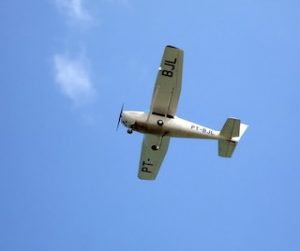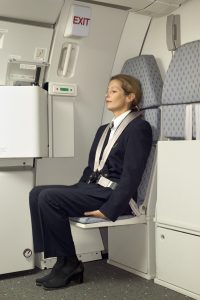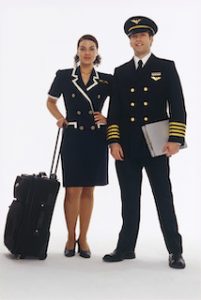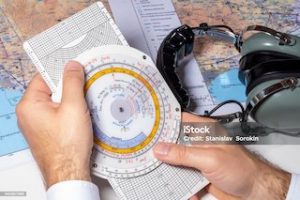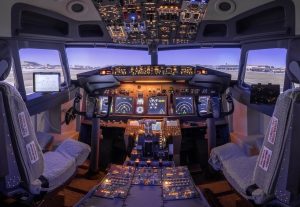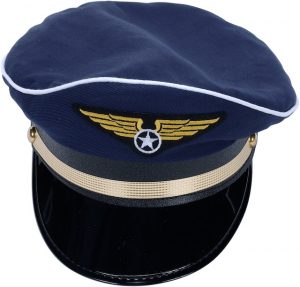The Right Flight School In Kenya
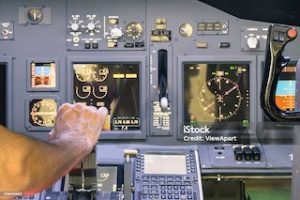 Kenya, with its rich aviation history and strategic location as a hub for East Africa, offers aspiring pilots a unique and vibrant environment to begin their aviation journey. Whether you are looking to become a commercial airline pilot, a private pilot, or even an aviation enthusiast seeking to fulfil a lifelong dream, selecting the right flight school in Kenya is crucial. This guide will help you understand the factors to consider and the steps to take when choosing a flight school in Kenya, ensuring that you make an informed decision that aligns with your aspirations.
Kenya, with its rich aviation history and strategic location as a hub for East Africa, offers aspiring pilots a unique and vibrant environment to begin their aviation journey. Whether you are looking to become a commercial airline pilot, a private pilot, or even an aviation enthusiast seeking to fulfil a lifelong dream, selecting the right flight school in Kenya is crucial. This guide will help you understand the factors to consider and the steps to take when choosing a flight school in Kenya, ensuring that you make an informed decision that aligns with your aspirations.
Flight school in Kenya
Kenya’s aviation sector has been growing steadily over the years, driven by the country’s strategic position, the rise of tourism, and its expanding economy. The country is home to several flight schools that cater to different needs, from private pilot training to advanced commercial pilot courses. As you search for a “flight school in Kenya,” it’s important to have a clear understanding of the local aviation landscape and the opportunities it presents.
Kenya’s aviation industry is regulated by the Kenya Civil Aviation Authority (KCAA), which ensures that all flight schools operate in compliance with international aviation standards. The KCAA oversees the certification of flight schools, licensing of pilots, and maintenance of safety standards. When choosing a flight school, ensure that it is approved by the KCAA and meets all regulatory requirements.
Types of pilot licenses in Kenya
Before enrolling in a flight school in Kenya, it is essential to understand the different types of pilot licenses available and which one aligns with your goals. The primary pilot licenses offered in Kenya include:
Private Pilot License (PPL): The Private Pilot License (PPL) is the most common entry point for aspiring pilots. This license allows you to fly as the pilot-in-command of an aircraft for non-commercial purposes. It’s ideal for those who want to fly for leisure or as a stepping stone towards more advanced certifications. The PPL program typically covers basic flight training, navigation, meteorology, and air law.
Commercial Pilot License (CPL): The Commercial Pilot License (CPL) is designed for individuals who want to pursue a career in aviation. With a CPL, you can work as a professional pilot for airlines, charter companies, or other commercial operations. The CPL program includes more advanced training, including complex aircraft operations, instrument flying, and multi-engine training. In Kenya, a CPL is often a prerequisite for aspiring airline pilots.
Airline Transport Pilot License (ATPL): The Airline Transport Pilot License (ATPL) is the highest level of pilot certification and is required for those who wish to become airline captains. The ATPL program involves extensive training, including advanced flight maneuvers, leadership skills, and in-depth knowledge of aviation regulations. Pilots must have accumulated significant flight hours and experience before qualifying for an ATPL.
Flight Instructor License (FI): For those interested in teaching others to fly, a Flight Instructor License (FI) is required. This license allows you to train student pilots and help them obtain their own pilot licenses. The FI program focuses on developing instructional skills, communication techniques, and the ability to assess and guide students effectively.
Factors to consider when choosing a flight school in Kenya
Selecting the right flight school is a critical step in your aviation journey. With several flight schools in Kenya to choose from, it’s important to consider various factors that will influence your training experience and future career prospects.
1) Location and accessibility
When searching for a “flight school in Kenya,” the location of the school is a significant factor to consider. Nairobi, the capital city, is home to several well-established flight schools and offers the advantage of proximity to Jomo Kenyatta International Airport (JKIA) and Wilson Airport, which provide diverse airspace for training. The bustling airspace around these airports offers valuable experience in navigating complex air traffic environments.
However, flight schools in more remote areas of Kenya may offer less congested airspace, allowing for focused training without the stress of busy commercial traffic. Consider your personal preferences and how the location aligns with your lifestyle and training goals.
2) Training aircraft and fleet
The quality and variety of the aircraft fleet are crucial to your training experience. A well-maintained and diverse fleet provides exposure to different types of aircraft, which is essential for developing your skills as a pilot. When evaluating flight schools in Kenya, inquire about the types of aircraft used for training, their maintenance schedules, and the availability of multi-engine aircraft if you’re pursuing advanced certifications.
Common training aircraft in Kenya include the Cessna 172, Piper PA-28, and Diamond DA40. These aircraft are widely used for their reliability, ease of handling, and suitability for both basic and advanced training. Ensure that the flight school you choose has a fleet that meets your training needs and is regularly maintained to ensure safety and reliability.
3) Instructor experience and quality
The quality of instruction is a critical component of your flight training. Experienced and knowledgeable instructors can make a significant difference in your learning experience. When searching for a “flight school in Kenya,” inquire about the qualifications, experience, and teaching styles of the instructors. Ideally, you want instructors with a strong background in aviation, including real-world flying experience and a deep understanding of the local airspace and regulations.
Consider the instructor-to-student ratio as well. A lower ratio means more personalized attention, which can accelerate your progress and ensure that you receive the guidance you need to succeed. Additionally, ask about the school’s policy on changing instructors if you feel that you are not meshing well with your assigned teacher.
4) Ground school and theoretical training
Ground school is an essential part of pilot training, covering the theoretical knowledge required to pass written exams and understand the principles of flight. When evaluating flight schools in Kenya, inquire about the ground school curriculum, the qualifications of the instructors, and the availability of resources such as textbooks, online courses, and simulation tools.
Some flight schools in Kenya offer traditional classroom-based ground school, while others provide online courses that you can complete at your own pace. Choose a school that offers a ground school program that matches your learning style and schedule. Whether you prefer face-to-face interaction or the flexibility of online learning, make sure the program covers all the necessary topics, including navigation, meteorology, air law, and aircraft systems.
5) Cost and financing options
Flight training is a significant financial investment, and the cost can vary widely between different flight schools in Kenya. When comparing schools, ask for a detailed breakdown of the costs, including tuition, aircraft rental, instructor fees, exam fees, and any additional expenses such as uniforms, books, and equipment.
Be cautious of flight schools that quote very low prices, as they may have hidden fees or use older, less reliable aircraft. It is also important to inquire about the availability of financing options, scholarships, or payment plans. Some flight schools in Kenya have partnerships with financial institutions that can help you manage the costs of training. Investigate these options early in your search to ensure that you can afford the program that best suits your needs.
6) Reputation and reviews
In today’s digital age, it is easier than ever to research the reputation of a flight school. When searching for a “flight school in Kenya,” take the time to read reviews and testimonials from former students. Look for feedback on the quality of instruction, the condition of the aircraft, the professionalism of the staff, and the overall training experience.
It is also worth checking whether the school has any accreditations or has received recognition from aviation organisations. Accreditation from the KCAA or international aviation bodies can be an indicator of the school’s commitment to maintaining high standards of training. Additionally, consider the school’s track record in terms of student success rates, including pass rates for exams and job placement after graduation.
The flight training process in Kenya
Once you have selected a flight school in Kenya, the next step is to understand the training process and what to expect during your journey to becoming a licensed pilot. The flight training process typically involves a combination of ground school, flight lessons, and exams.
Ground school
Ground school is the foundation of your flight training and covers the theoretical knowledge required to become a competent pilot. In Kenya, ground school usually covers subjects such as aerodynamics, navigation, meteorology, air law, human performance, and aircraft systems. This theoretical knowledge is essential for passing the written exams required for your pilot license.
Ground school can be completed in a traditional classroom setting or through online courses, depending on the flight school you choose. The duration of ground school varies depending on the type of license you are pursuing and the pace at which you progress. Some students complete ground school in a few months, while others may take longer if they are studying part-time.
Flight lessons
Flight lessons are the practical component of your training and involve hands-on experience flying an aircraft. In Kenya, flight training typically begins with basic manoeuvres such as straight-and-level flight, climbs, descents, and turns. As you progress, you’ll learn more advanced maneuvers, including takeoffs, landings, emergency procedures, and navigation.
Your flight training will also include cross-country flights, where you will learn to navigate between different airports and manage fuel consumption, weather conditions, and airspace regulations. If you are pursuing a commercial pilot license, you will receive additional training in complex aircraft operations, instrument flying, and multi-engine operations.
Exams and checkrides
To obtain your pilot license in Kenya, you will need to pass both written exams and practical tests, known as check-rides. The written exams cover the theoretical knowledge you’ve learned in ground school and are administered by the KCAA. The number of exams and the subjects covered vary depending on the type of license you’re pursuing.
The checkride is the final step in your training and involves a practical test with an examiner. During the check-ride, you will be required to demonstrate your flying skills, including pre-flight inspections, manoeuvres, emergency procedures, and navigation. The examiner will assess your ability to operate the aircraft safely and competently, and if you pass, you will be issued your pilot license.
Continuing your aviation education
Flight training does not end with obtaining your pilot license. Continuing education and recurrent training are essential for maintaining your skills and staying current with changing regulations. Many flight schools in Kenya offer advanced training programs, such as instrument ratings, multi-engine ratings, and flight instructor certifications.
As you advance in your aviation career, you will also need to complete regular recurrent training, which may include flight reviews, instrument proficiency checks, and simulator sessions. Staying engaged in your education ensures that you are always ready to fly safely and competently.
Career opportunities for pilots in Kenya
Kenya’s aviation industry offers a range of career opportunities for pilots, from commercial airlines to charter companies, corporate flight departments, and government agencies. After completing your training at a flight school in Kenya, you will be well-positioned to pursue a career in one of these areas.
Commercial airlines
Kenya is home to several commercial airlines, including Kenya Airways, the country’s flag carrier. With a growing demand for air travel in the region, commercial airlines are constantly seeking qualified pilots to join their ranks. As a commercial airline pilot, you will have the opportunity to fly domestically and internationally, with the potential to advance to the position of captain after gaining experience and accumulating flight hours.
Charter companies
Charter companies in Kenya offer a variety of services, including private flights, cargo transport, and medical evacuations. Pilots working for charter companies often enjoy more flexibility in their schedules and the opportunity to fly to unique and remote destinations. This type of flying requires a high level of skill and adaptability, as charter pilots often operate in challenging environments with varying weather conditions and airstrip types.
Corporate flight departments
Corporate flight departments provide private flight services for businesses and high-net-worth individuals. As a corporate pilot, you’ll fly executive jets and other aircraft to destinations around the world. This role requires a high level of professionalism, customer service skills, and the ability to operate advanced aircraft systems.
Government and military aviation
The Kenyan government and military also offer career opportunities for pilots. Government agencies may require pilots for operations such as aerial surveys, search and rescue missions, and law enforcement activities. The Kenya Defence Forces (KDF) also trains and employs pilots for various military operations, including transport, reconnaissance, and combat missions.
Conclusion
Choosing the right flight school in Kenya is a critical step in your journey to becoming a pilot. By considering factors such as location, training aircraft, instructor quality, ground school programs, cost, and reputation, you can make an informed decision that sets you on the path to success. Kenya’s vibrant aviation industry offers a wealth of opportunities for aspiring pilots, and with the right training and dedication, you can achieve your dream of taking to the skies. Whether you’re aiming to fly for a commercial airline, a charter company, or pursue other aviation opportunities, the foundation you build at a flight school in Kenya will be the key to your success.

